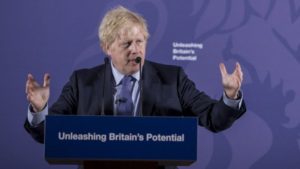Photo courtesy of The Straits Times.
While countries around the world have been floundering to push back against COVID-19, Singapore has been operating steadily against the disease for months. They were the third country to report cases of the virus back in February and have since only had three deaths, all of which occurred in the past two weeks. A couple of months ago, Singapore was reporting some of the highest numbers of COVID-19 cases outside of China, but now still has less than a thousand cases island-wide. So, why is Singapore doing so well? How have they been dealing with COVID-19 for months longer than most of the world, yet are reporting such low numbers? And how can the rest of the world learn from Singapore?
From the moment the first cases of the virus began to be reported in December, Singapore began to prepare. After being one of the countries to suffer greatly during the SARS crisis of 2003, Singapore has taken measures to make sure that they are never caught off guard by a sweeping virus again. They’ve built isolation hospitals, negative pressure rooms, and implemented legislation to prepare themselves for this exact situation, and the measures have proven their worth. From the get-go, Singapore has been extremely thorough in their testing, as they trace and monitor the health of anyone who came into contact with someone who has tested positive, and ensuring that testing remains accessible to anyone that needs it. Anyone who is experiencing any sort of symptom, even if they’re just symptoms of the flu or pneumonia, is tested or invited to get tested, and if tested positive they are immediately hospitalized. Immediately hospitalizing any COVID-19 case, no matter how mild, has been another important step for reducing the spread of the virus, as home quarantines are hard to accomplish properly, especially when living with others. As soon as someone tests positive, there will also be thorough interviews to see who the person came in contact with recently, and some investigation to figure out where the case was contracted and if it was spread further from that point. Thorough tracing and swift action have been pillars of Singapore’s response, and the results are evident.
All positive cases of the Coronavirus are being treated in hospitals, yet barely any healthcare professionals have become infected. This is a stark contrast to the rest of the world, where healthcare workers are among those with the highest rates of infection due to their tireless hours of working on the frontlines. Singapore’s lack of infection among healthcare workers can be traced to one key aspect: supplies. Since the SARS crisis, Singapore has been stockpiling various kinds of surgical masks and gloves, especially the N95 mask, and it has proven incredibly effective for their medical professionals. When the Coronavirus first emerged in Singapore, its citizens began panic-buying masks much like the rest of the world, but Singapore’s government released a message urging Singaporeans to save the masks for the medical professionals who really needed them. Prime Minister Lee Hsien Loong’s constant and reassuring communication with the Singapore public has been another cornerstone in keeping Singapore calm and under control, as panic-buying has been kept to a minimum and the country has kept a steady head.
Unlike much of the world, Singapore also isn’t on a complete lockdown. Citizens are free to leave their homes as they wish but have the sense to keep to social distancing norms. Singapore has imposed regulations such as shutting down entertainment venues and closing its borders to all but Singapore citizens and residents but hasn’t mandated that its citizens remain home at all times. Those returning from abroad are being issued with 14-day stay-at-home notices, and are checked up on daily by the Immigration & Checkpoints Authority (ICA) via text message to make sure that they are at home to help stop the spread of imported Coronavirus cases. Strict punishments are being doled out to those who violate their stay-at-home notices, such as one Singaporean citizen who had his passport revoked. For short-term visitors who arrived before the borders were shut completely, like me, or non-citizens, penalties can include being deported and being barred from entering Singapore for an undetermined length of time. The Singaporean government, more than any other government in the world, has been incredibly proactive in stopping the spread of COVID-19. Because of their past experience with SARS, and their commitment to keeping their people safe, they’ve been able to slow the spread of the virus in their country exponentially and have made themselves a model that the rest of the world would do well to follow.



